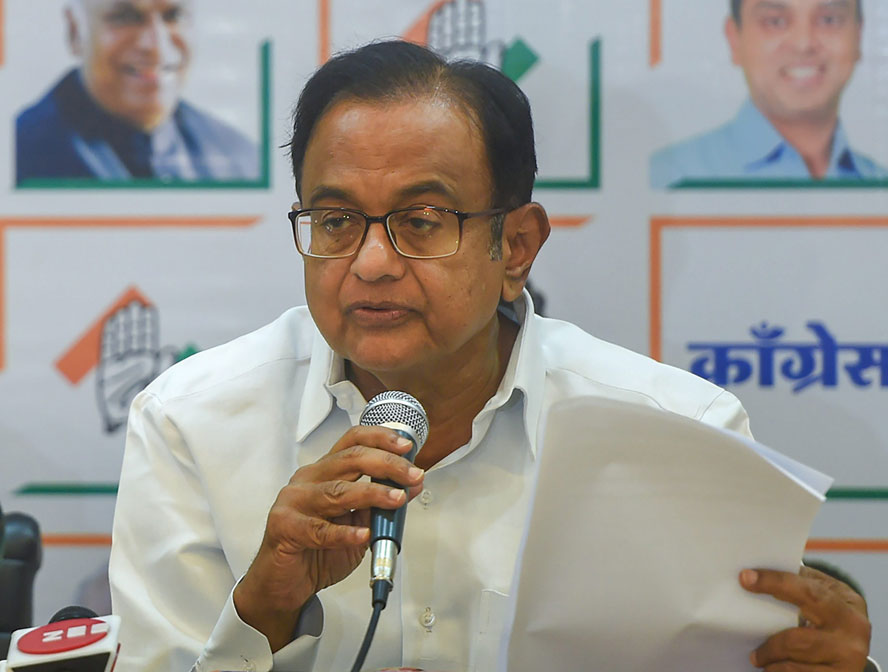The Congress on Friday alleged that Prime Minister Narendra Modi was misleading the nation on the three farm sector bills passed in Parliament and contested the government’s argument that these had been part of the Opposition party’s manifesto.
The government has this week passed the Farmers’ Produce, Trade and Commerce (Promotion and Facilitation) Bill, Farmers’ (Empowerment and Protection) Agreement on Price Assurance and Farm Services Bill and the Essential Commodities (Amendment) Bill, disregarding protests by farmers and the Opposition, who claim these are aimed at helping corporate groups.
Former finance minister P. Chidambaram, who headed the committee that drafted the Congress manifesto for the 2019 Lok Sabha elections, said on Friday: “Disappointed with the BJP spokespersons’ distortion of the Congress manifesto statement on APMC (Agriculture Produce Marking Committee) laws. Our manifesto had promised that we would create thousands of farmers’ markets in small towns and large villages. Once that is accomplished, APMC laws can be changed.”
Prime Minister Narendra Modi, agriculture minister Narendra Singh Tomar and BJP president J.P. Nadda have defended the government’s decisions by citing the Congress manifesto.
The manifesto had said: “The Congress will repeal the APMC Act and make trade in agricultural produce — including exports and inter-state trade — free from all restrictions.”
Congress communications chief Randeep Surjewala said: “The Congress wanted to set up mandis within 2-3km of farms while APMC mandis are 60-70km away. The manifesto said, ‘We will establish farmers’ markets with adequate infrastructure and support in large villages and small towns to enable the farmer to bring his/her produce and freely market the same.’”
Congress leaders have said the three bills brought by the Modi government together have an impact entirely different from what the party had envisioned. They have pointed out that the Congress manifesto had promised complete loan waiver, a separate kisan budget, and a permanent national commission on agriculture development and planning.
Chidambaram said: “The way to liberalise agricultural marketing is to create more accessible markets and choice for the farmer. There will be rules to regulate such markets. The APMC system is indeed a safety net for the farmer but it is a restricted market that is not accessible to millions of farmers.
“We need to enlarge the market for agriculture produce while preserving the ‘safety net’ principle through MSP (minimum support price) and public procurement. The laws sought to be passed by the Modi government scuttle the MSP principle and undermine public procurement.”
The Congress veteran tweeted that the bills “challenge the three pillars of our still-imperfect ‘food security system’. They are (1) MSP, (2) public procurement, and (3) PDS. The grave flaw in the ordinances is that they do not stipulate that the price which the farmer gets ‘shall not be less than the MSP’. States were not consulted. The passage of the laws is a huge blow dealt by the BJP government to states’ rights and federalism.”
Punjab chief minister Amarinder Singh contested the Centre’s claim that the states were part of the decision-making. He said that
Punjab was not initially included in the decision-making process, and was made part of it only after a protest was lodged.
Congress leader Rahul Gandhi tweeted: “The enlightened farmers know the government intends to boost the business of his corporate friends through these farm-related legislations which will attack the farmers’ livelihood.”











